News
Nigerian Editors chart path for sustainable development
Published
2 years agoon
By
Editor 1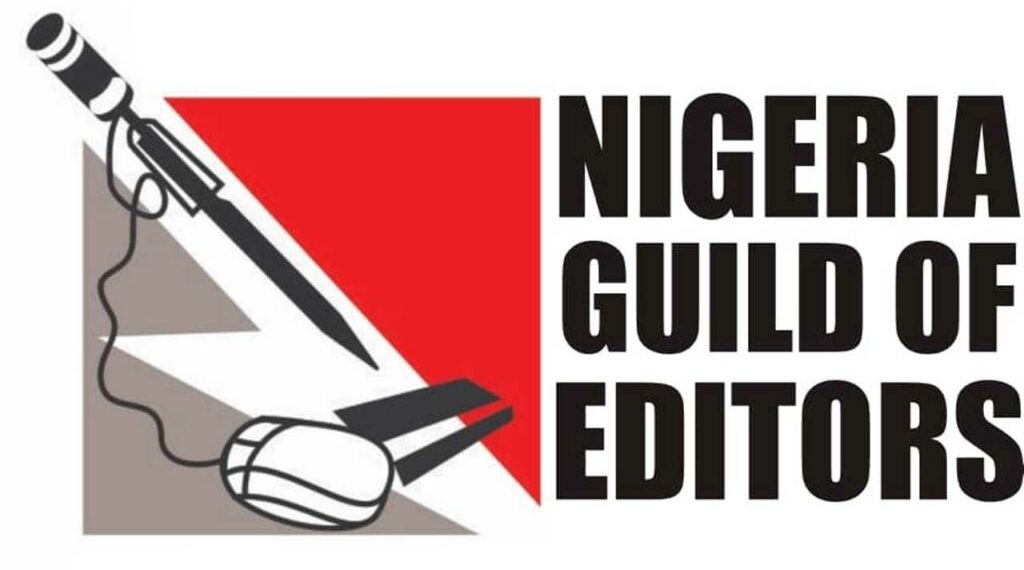
The Nigerian Guild of Editors on Thursday convened a town hall meeting in Abuja to chart the path for the growth of democracy, good governance, and national development.
President of the Nigerian Guild of Editors, Mustapha Isah, at the meeting pointed out the role of the media in setting agenda for state actors and holding governments accountable to the people. Isah emphasized that all aspects of good governance are facilitated by a strong and independent media.
He questioned the degree of freedom for the Nigerian media to perform this role, noting that “it is only when journalists are free to monitor, investigate and criticize public policies and actions can good governance can take root.”
The NGE President stated that freedom of the media allows for the creation of a public space in which a wide range of debates and expression of variety of viewpoints can take place.
“A free and critical press is essential for the growth and development of any democracy.
“The media as a watchdog of society owes it as a duty to monitor governance and hold public office holders accountable to the people who elected them.
“Good governance is simply an essential framework which serves as a means of achieving wider goals, including security of life and property (which is the primary goal of government, according to the 1999 constitution), prosperity and the general well-being of the citizenry.
“Journalists are part of the society and stand to also benefit from good governance if provided. “So, it won’t be misplaced priority if our profession devotes more time and energy to promoting good governance,” Isah declared.
the full statement reads:
SPEECH DELIVERED BY PRESIDENT OF THE NIGERIAN GUILD OF EDITORS, MUSTAPHA ISAH, AT THE TOWN HALL MEETING ON MARCH 3, 2022, IN ABUJA.
PROTOCOLS
I’m extremely delighted to welcome all of you to this Town Meeting with the theme ” Agenda Setting for Sustainable Development”
This is the fourth in the series with the first three held in Lagos , Kano and Yola, under the NGE/US Embassy capacity building programme for editors in the Southwest , Northwest and Northeast zones .
The pertinent question we want to find answers to is: What role should the media play in setting the agenda that would lead to a sustainable democratic culture in Nigeria? How do we encourage the youth and the women to participate more actively in the democratic process?
Section 22 of the 1999 constitution says, “the press, radio, television, and other agencies of the media should at all times be free to uphold the responsibility and accountability of the government to the people”. This section gives the media the enormous responsibility to hold the government accountable to the people.
How well has the media in Nigeria played this role? This Town Meeting is expected to assess our performance and suggest ways for improvement.
Various stakeholders, including youth groups, organized labour, students, civil society organizations, traditional and religious groups, have been invited to this Town Hall meeting to share ideas on how to sustain our hard -earned democracy. We plead for frank and robust engagement.
All aspects of good governance are facilitated by a strong and independent media.
How free is the Nigerian media to perform this role? I asked this question because it is only when journalists are free to monitor, investigate and criticize public policies and actions can good governance can take root.
Freedom of the media allows for the creation of a public space in which a wide range of debates and expression of variety of viewpoints can take place.
A free and critical press is essential for the growth and development of any democracy.
The media as a watchdog of society owes it as a duty to monitor governance and hold public office holders accountable to the people who elected them.
Good governance is simply an essential framework which serves as a means of achieving wider goals , including security of life and property ( which is the primary goal of government , according to the 1999 constitution), prosperity and the general well-being of the citizenry.
Journalists are part of the society and stand to also benefit from good governance if provided. So, it won’t be misplaced priority if our profession devotes more time and energy to promoting good governance.
On no account should Nigerians take its democracy for granted. In the last one year, there have been four coups in West Africa alone in which the military truncated democracy in those countries. A democratic government was toppled in Chad on April 20, 2021. We’ve had two coups in Mali in less than one year. On September 5, 2021, the military struck in Guinea and on January 24, 2022, the Burkina Faso military followed the dangerous trend and negative trend.
All these happenings in our West African neighbours should serve as a warning to us here to jealously protect our democracy through good governance, openness and citizens’ participation. Only the people have the ability and force to checkmate power hungry military from truncating democracy anywhere in the world.
The Guild believes that democracy remains the best form of government because it guarantees freedoms and it has the ability to correct its own mistakes if the people don’t go to sleep after elections.
Now, let’s talk about the role of the media in setting agenda for sustainable democratic culture and deepening of the democratic space.
One of the major roles of the media is agenda setting. The more stories the media do on a particular subject, the more importance the audience will attach to it.
Maxwell McCombs and Donaki Shaw in their research in 1972 on the US 1968 presidential election concluded that editors played an important role in shaping political reality.
According to them, the mass media determine the importance issues for campaign.
Can the media in Nigeria shape the political reality in the country? If the answer is yes; how then can this be achieved?
Another author, Stanley Baran wrote in 2002 and I quote ” the media may not tell us what to think, but the media certainly can tell us what to think about”
What is currently dominating headlines in the media on the 2023 general elections is zoning and power rotation . This is often laced with religious and ethnic sentiments. But we should realize that this is the agenda of the politicians. The media shouldn’t allow the selfish politicians to set agenda for them. We should be one setting agenda for them before, during and after elections.
As the politicians talk about zoning, we, I mean the media, should remind them that we are more interested in the issues of development, education, security, youth employment and poverty eradication, and other issues affecting the common man.. Poverty doesn’t recognize ethnicity and religion. The ordinary Nigerians are faced with the same challenges, whether in Potiskum, Jos, Gboko, Gusau, Enugu, Warri, Ibadan, Calabar or Ekpoma. They just want the basic things of life.
We want to hear from you how well we have performed this agenda setting role. We are open to suggestions on how we can improve on our performance.
I won’t end this speech without saying a special thank you to the US government through its Embassy in Nigeria in making this event possible. The Nigerian Guild of Editors is indeed very grateful for your support.
Dear colleagues, special guests, and students here present, we are here to hear from you.
I want us to form a strong alliance in the quest to sustain and deepen our democracy.
I thank all of you for coming and I wish all of us fruitful deliberations.
Welcome to Abuja, the Centre of Unity.
Mustapha Isah, President, NGE
Nigerian Editors chart path for sustainable development
The Nigerian Guild of Editors on Thursday convened a town hall meeting in Abuja to chart the path for the growth of democracy, good governance, and national development. President of the Nigerian Guild of Editors, Mustapha Isah, at the meeting pointed out the role of the media in setting agenda for state actors and holding governments accountable to the people. Isah emphasized that all aspects of good governance are facilitated by a strong and independent media.
He questioned the degree of freedom for the Nigerian media to perform this role, noting that “it is only when journalists are free to monitor, investigate and criticize public policies and actions can good governance can take root.”
The NGE President stated that freedom of the media allows for the creation of a public space in which a wide range of debates and expression of variety of viewpoints can take place.
“A free and critical press is essential for the growth and development of any democracy.
“The media as a watchdog of society owes it as a duty to monitor governance and hold public office holders accountable to the people who elected them.
“Good governance is simply an essential framework which serves as a means of achieving wider goals, including security of life and property (which is the primary goal of government, according to the 1999 constitution), prosperity and the general well-being of the citizenry.
“Journalists are part of the society and stand to also benefit from good governance if provided. “So, it won’t be misplaced priority if our profession devotes more time and energy to promoting good governance,” Isah declared.
the full statement reads:
SPEECH DELIVERED BY PRESIDENT OF THE NIGERIAN GUILD OF EDITORS, MUSTAPHA ISAH, AT THE TOWN HALL MEETING ON MARCH 3, 2022, IN ABUJA.
PROTOCOLS
I’m extremely delighted to welcome all of you to this Town Meeting with the theme ” Agenda Setting for Sustainable Development”
This is the fourth in the series with the first three held in Lagos , Kano and Yola, under the NGE/US Embassy capacity building programme for editors in the Southwest , Northwest and Northeast zones .
The pertinent question we want to find answers to is: What role should the media play in setting the agenda that would lead to a sustainable democratic culture in Nigeria? How do we encourage the youth and the women to participate more actively in the democratic process?
Section 22 of the 1999 constitution says, “the press, radio, television, and other agencies of the media should at all times be free to uphold the responsibility and accountability of the government to the people”. This section gives the media the enormous responsibility to hold the government accountable to the people.
How well has the media in Nigeria played this role? This Town Meeting is expected to assess our performance and suggest ways for improvement.
Various stakeholders, including youth groups, organized labour, students, civil society organizations, traditional and religious groups, have been invited to this Town Hall meeting to share ideas on how to sustain our hard -earned democracy. We plead for frank and robust engagement.
All aspects of good governance are facilitated by a strong and independent media.
How free is the Nigerian media to perform this role? I asked this question because it is only when journalists are free to monitor, investigate and criticize public policies and actions can good governance can take root.
Freedom of the media allows for the creation of a public space in which a wide range of debates and expression of variety of viewpoints can take place.
A free and critical press is essential for the growth and development of any democracy.
The media as a watchdog of society owes it as a duty to monitor governance and hold public office holders accountable to the people who elected them.
Good governance is simply an essential framework which serves as a means of achieving wider goals , including security of life and property ( which is the primary goal of government , according to the 1999 constitution), prosperity and the general well-being of the citizenry.
Journalists are part of the society and stand to also benefit from good governance if provided. So, it won’t be misplaced priority if our profession devotes more time and energy to promoting good governance.
On no account should Nigerians take its democracy for granted. In the last one year, there have been four coups in West Africa alone in which the military truncated democracy in those countries. A democratic government was toppled in Chad on April 20, 2021. We’ve had two coups in Mali in less than one year. On September 5, 2021, the military struck in Guinea and on January 24, 2022, the Burkina Faso military followed the dangerous trend and negative trend.
All these happenings in our West African neighbours should serve as a warning to us here to jealously protect our democracy through good governance, openness and citizens’ participation. Only the people have the ability and force to checkmate power hungry military from truncating democracy anywhere in the world.
The Guild believes that democracy remains the best form of government because it guarantees freedoms and it has the ability to correct its own mistakes if the people don’t go to sleep after elections.
Now, let’s talk about the role of the media in setting agenda for sustainable democratic culture and deepening of the democratic space.
One of the major roles of the media is agenda setting. The more stories the media do on a particular subject, the more importance the audience will attach to it.
Maxwell McCombs and Donaki Shaw in their research in 1972 on the US 1968 presidential election concluded that editors played an important role in shaping political reality. According to them, the mass media determine the importance issues for campaign.
Can the media in Nigeria shape the political reality in the country? If the answer is yes; how then can this be achieved?
Another author, Stanley Baran wrote in 2002 and I quote ” the media may not tell us what to think, but the media certainly can tell us what to think about”
What is currently dominating headlines in the media on the 2023 general elections is zoning and power rotation . This is often laced with religious and ethnic sentiments. But we should realize that this is the agenda of the politicians. The media shouldn’t allow the selfish politicians to set agenda for them. We should be one setting agenda for them before, during and after elections.
As the politicians talk about zoning, we, I mean the media, should remind them that we are more interested in the issues of development, education, security, youth employment and poverty eradication, and other issues affecting the common man.. Poverty doesn’t recognize ethnicity and religion. The ordinary Nigerians are faced with the same challenges, whether in Potiskum, Jos, Gboko, Gusau, Enugu, Warri, Ibadan, Calabar or Ekpoma. They just want the basic things of life.
We want to hear from you how well we have performed this agenda setting role. We are open to suggestions on how we can improve on our performance.
I won’t end this speech without saying a special thank you to the US government through its Embassy in Nigeria in making this event possible. The Nigerian Guild of Editors is indeed very grateful for your support.
Dear colleagues, special guests, and students here present, we are here to hear from you.
I want us to form a strong alliance in the quest to sustain and deepen our democracy.
I thank all of you for coming and I wish all of us fruitful deliberations.
Welcome to Abuja, the Centre of Unity.
Mustapha Isah, President, NGE
Trending
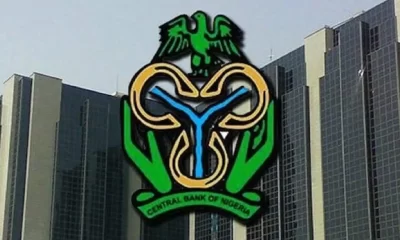
 Business1 week ago
Business1 week agoOn The Central Bank Of Nigeria’s Circular Relating To The Collection And Remittance Of The National Cybersecurity Levy
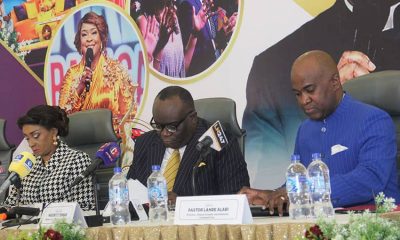
 Inspirational1 week ago
Inspirational1 week agoExcitement as Christ Embassy announces date for 2024 edition of Rhapathon with Pastor Chris
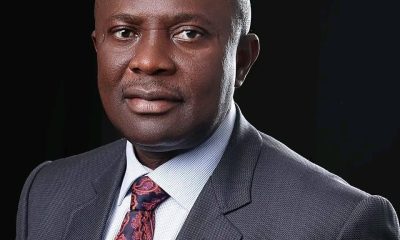
 Politics1 week ago
Politics1 week agoReactions as Tinubu appoints Emeka Woke, CEO, Ogun-Osun River Basin Dev Authority, after resignation from Fubara’s cabinet in Rivers
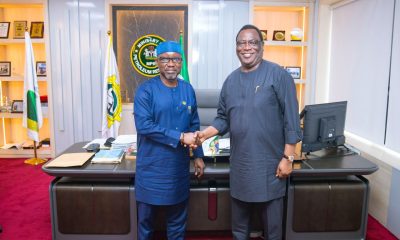
 Business1 week ago
Business1 week agoNCDMB co-chair, Ekpo meets Exec Sec, pledges support for local content programmes
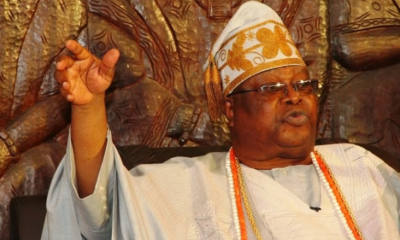
 Featured1 week ago
Featured1 week agoTinubu confers national honour on Awujale of Ijebu
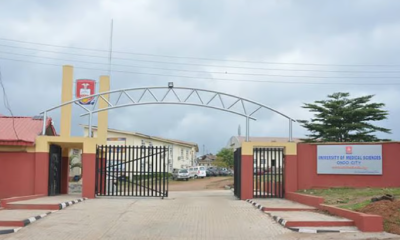
 Education1 week ago
Education1 week agoUNIMED dismisses Deputy VC over false allegations against management
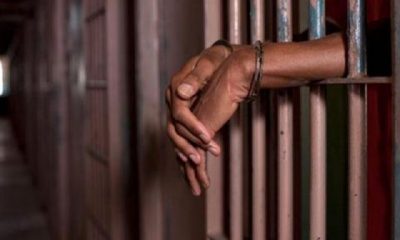
 Latest7 days ago
Latest7 days agoOne shot as detained soldiers break out of ‘overcrowded cells’ to protest poor feeding
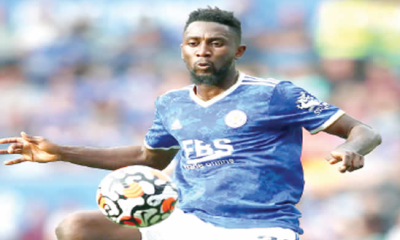
 Features1 week ago
Features1 week agoMaresca hints at Ndidi Leicester stay




